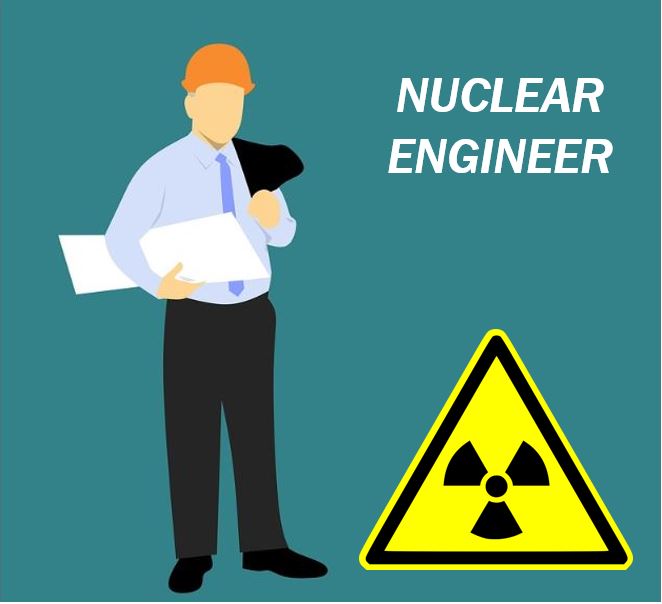 Nuclear engineering is all about harnessing nuclear power. A nuclear engineer might design equipment for hospitals, operate advanced machinery, oversee a power plant, or study ways to make nuclear energy even more safe and effective. That definitely sounds intriguing, but how long will it take to get there?
Nuclear engineering is all about harnessing nuclear power. A nuclear engineer might design equipment for hospitals, operate advanced machinery, oversee a power plant, or study ways to make nuclear energy even more safe and effective. That definitely sounds intriguing, but how long will it take to get there?
First things first
If you’re interested in becoming a nuclear engineer, the place to start is with a bachelor’s degree. To get there, you should start thinking about the future while in high school. As you have opportunity, choose advanced classes in mathematics and sciences. These will help you set up a solid foundation to help you cruise through your introductory college classes.
Bachelor degrees
An online nuclear engineering degree can open doors for you at entry-level positions in many industries. Look for a school accredited by the Engineering Technology Accreditation Commission of ABET to ensure you’re getting an education that will really prepare you for the industry.
Most people take four years to finish a bachelor’s degree, but with an online degree, you can be more flexible. If you need to work while you study, you might complete your education in six or even eight years. If you are in a hurry, though, you can take classes in the summer and cut your time down to three years.
A bachelor’s degree will equip you with all the basics in principles of engineering, laboratory studies, mathematics, and field studies. A nuclear engineer needs certain skills and qualities. While you may have many of these naturally, your studies will help you hone and apply them. Some of the skills include:
- Regular application of advanced mathematics
- Close attention to detail
- Excellent analytical skills
- Problem-solving skills
- Ability to think and reason logically
- Clear communication skills
Entering a position
Once you have your first degree, you will look for a job. Allow from six months to one year of job hunting. Certainly you might get a job far sooner than this, but if you are financially prepared for up to a year of job hunting, you’ll be able to take your time and find the job you really want.
Once you get a position, however, that’s not the end of your journey. Next, you will need to train onsite before you can work on your own in your new job. Training typically takes anywhere from three to six months, depending on the position and your set responsibilities.
Becoming a full fledged nuclear engineer
Even after training, you will be under the supervision of a more advanced engineer as you gain experience. This process will take another four years. Once you have that experience, you’ll have a lot more freedom to move up or out to a new position.
Getting a license
The good news is that you don’t need a license at all for most entry-level nuclear engineering positions. The bad news is that you’ll never move up without one. In most states, you need a license if you’re going to provide any services to the public directly or be allowed to supervise other engineers or be primarily responsible for any projects. You can get your license by taking an exam once you have four years of experience.
Advancing
Most people in the field of nuclear engineering are interested in moving up. The average salary nationally for advanced nuclear engineers is over $100,000 a year. To get there, plan on taking an additional two years to get a master’s degree and fulfill a research study.
Becoming a nuclear engineer
So how long will it take to become a real nuclear engineer? You’ll need between four and eight years to get your first degree and find an entry-level job. It will take about eight to 12 years to become a full-fledged engineer able to work independently, get research grants, and realize your full potential in this exciting and rewarding career.

